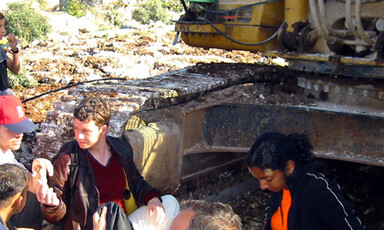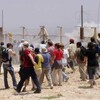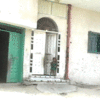
Film review: James Longley's "Gaza Strip" (2002)
29 July 2003
Cover of the video/DVD.
James Longley’s Gaza Strip is a 74-minute documentary filmed between January and April 2001, a period that stretches from four months after the beginning of the Second Palestinian Intifada — immediately preceding the election of Ariel Sharon as Israel’s prime minister — up to the end of Sharon’s third month in office. “I made this film,” Longley notes in the director’s commentary that accompanies the very highly recommended DVD version, “to satisfy my own curiosity about what was happening in the Gaza Strip since I found that it was very difficult to find information in the mainstream media and get a detailed look at what was going on, what people there were like, what they were thinking about.” EI’s Nigel Parry reviews the film. Read more about Film review: James Longley's "Gaza Strip" (2002)



